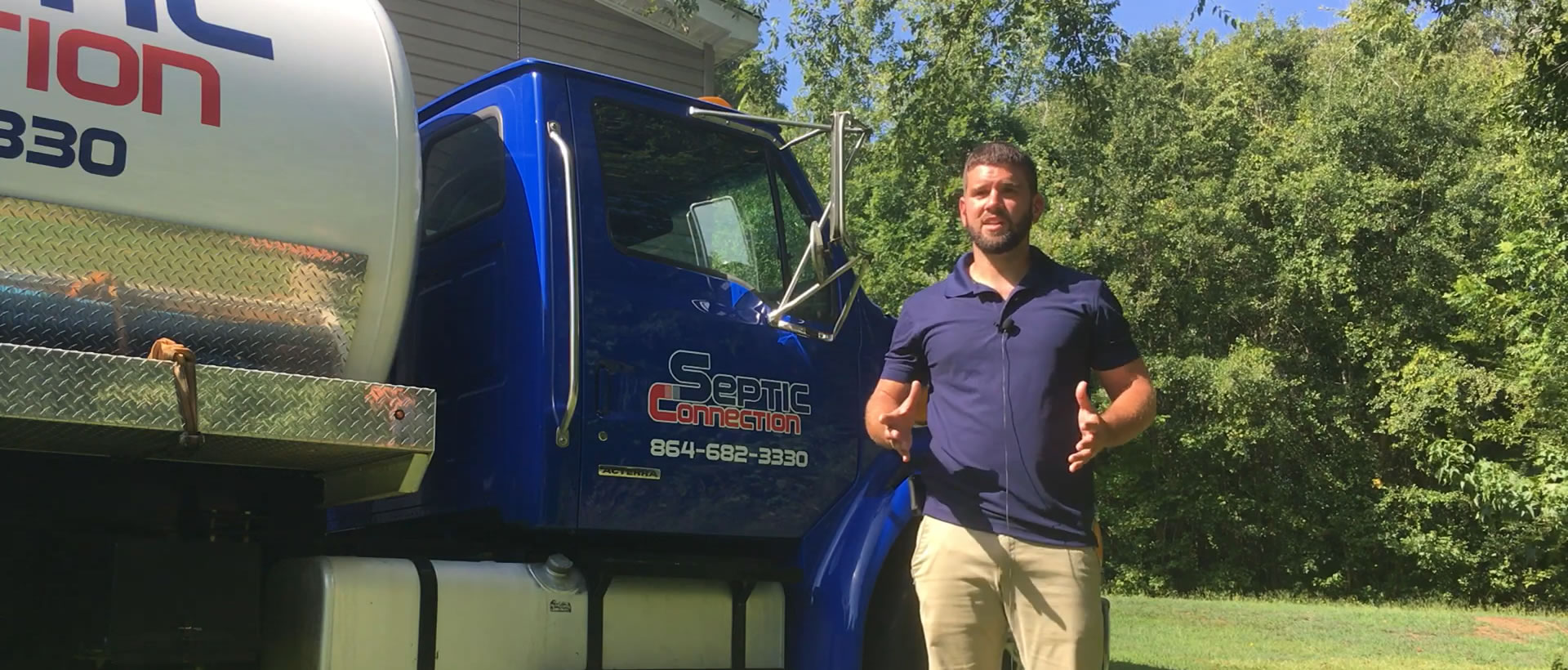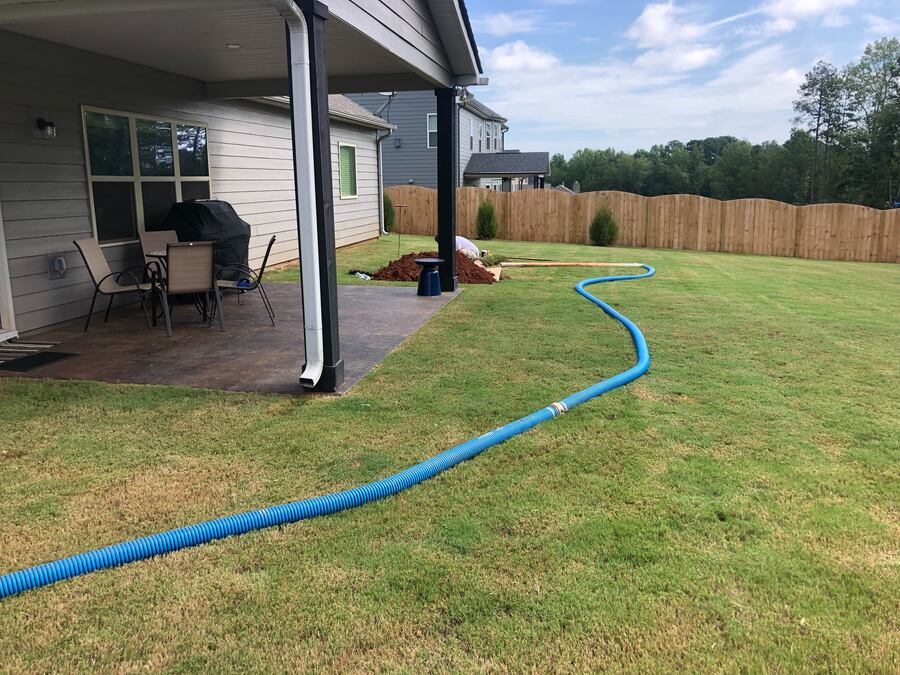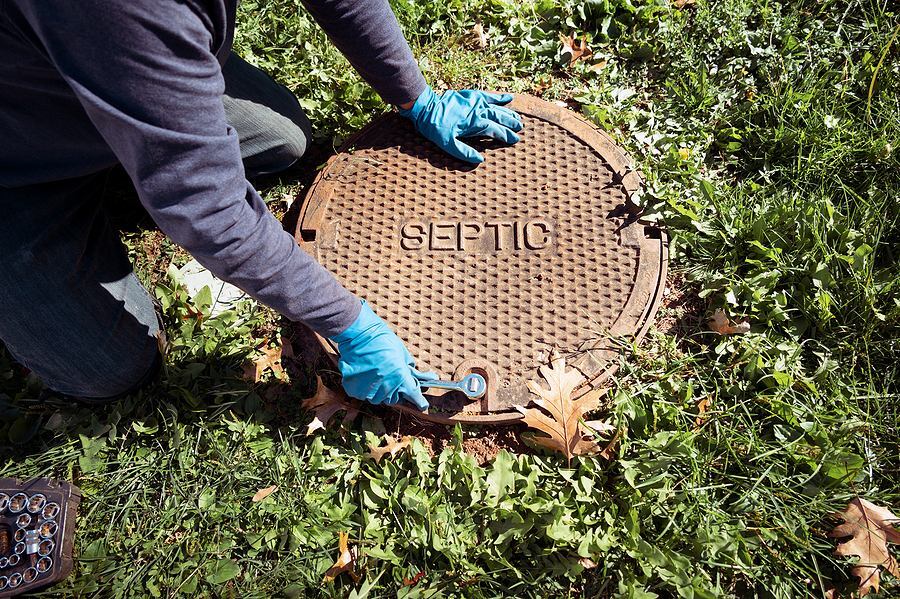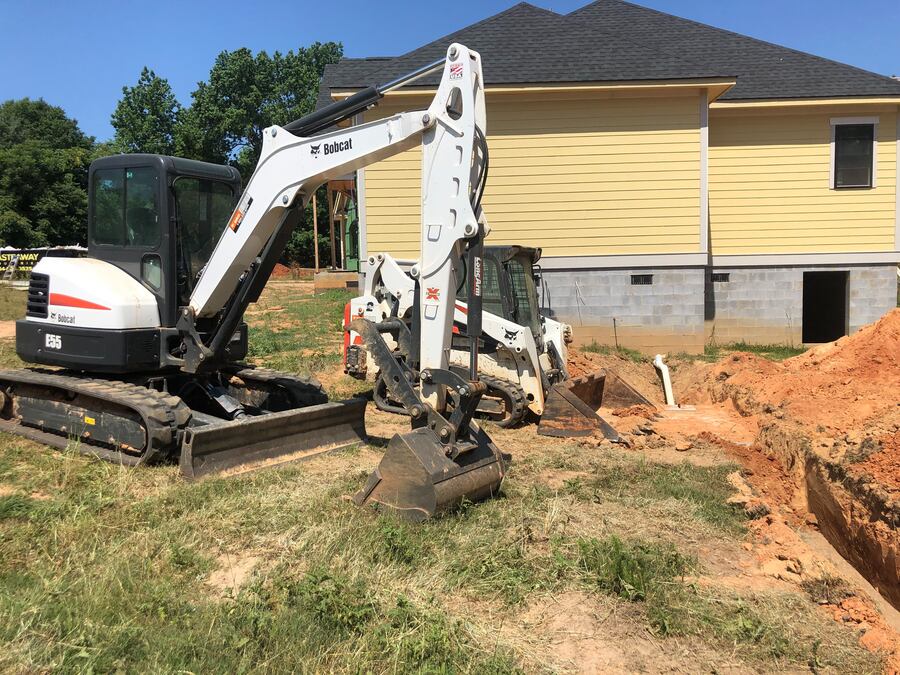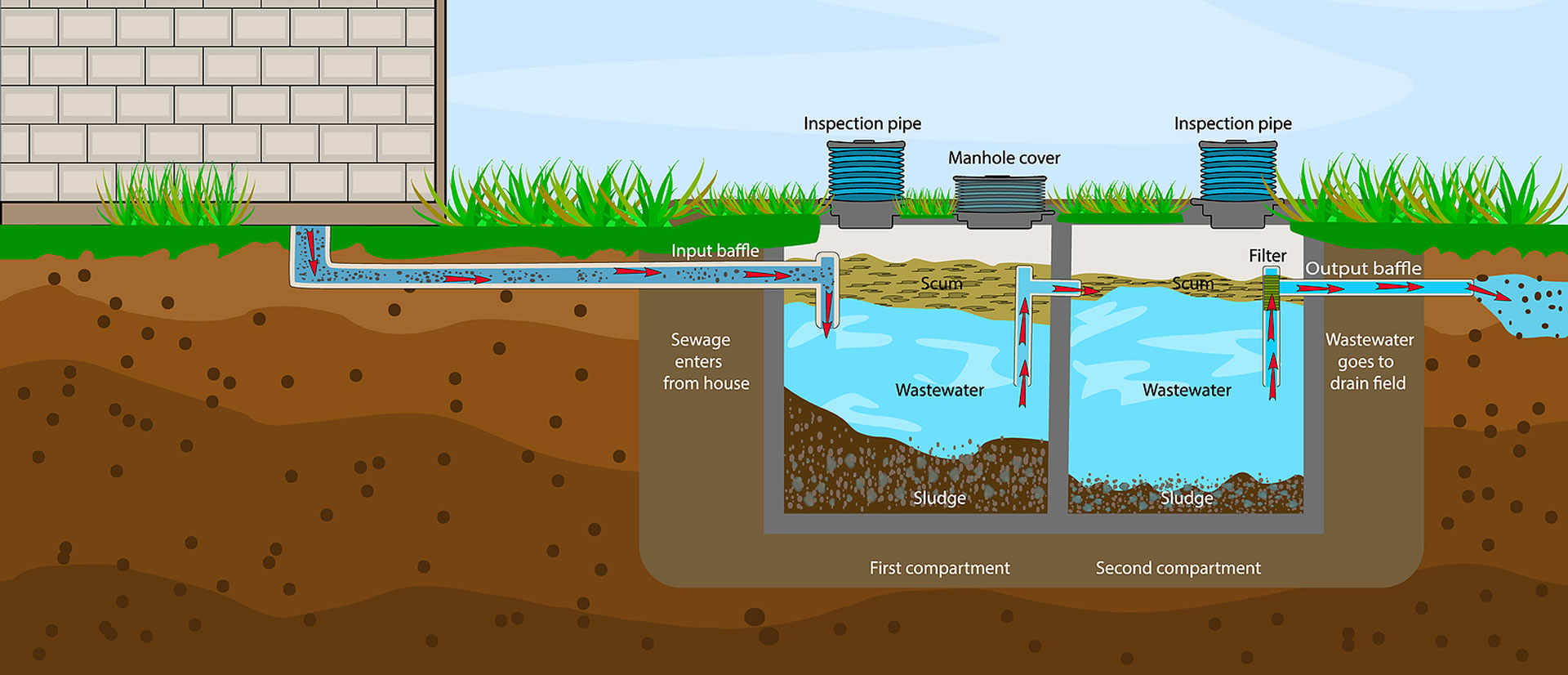
The Role of Microbes in Your Septic System
Spending a little bit of time to understand how your septic system works can end up saving you tons of time and money in the long run. Knowing the role of microbes in your septic system, for instance, can open your eyes to taking care of them so that they can continue to take care of you. In this article brought to you by the folks at Septic Connection, we will review a few of the “good” bacteria in your septic system and then provide some tips on how you can keep them healthy and working hard! You are always welcomed to call Septic Connection if you need quality septic tank cleaning, repair or maintenance.
How the Septic System Works
The septic system actually involves a simple process. We can summarize how the septic system works in three stages.
First, waste and wastewater travels through your household drains and into the septic tank where they split into three layers. There is a top layer of scum, a middle layer of liquid effluent, and a bottom layer of solid waste.
The wastewater flows through the outlet pipe and distribution box toward the drain field. There, the wastewater filters through the soil for treatment.
Finally, the solid waste in the septic system is routinely pumped out, usually by trained and equipped septic technicians. Performing this task on your own is not feasible.
Microbes in The Tank
There are bacteria in the septic tank that play a crucial role in making the most out of the septic tank’s limited capacity. Aerobic bacteria uses oxygen to digest and break down the top layer of scum while bacteria at the bottom of the tank use anaerobic digestion to break down solid waste into sludge. Almost half of the solid waste is turned into gases such as methane, hydrogen sulfide, and sulfur dioxide. As you can guess, this saves valuable space.
There are also bacteria in the drain field. Anaerobic bacteria and other microbes in the soil form biofilm, a slime layer that holds bacteria together. As wastewater flows out of the perforated pipes in the drain field, the biofilm catches organic waste and removes pathogens.
As you can see, the bacteria both saves space and removes harmful material from the wastewater so that the soil and underground water sources are not contaminated. This is why you should take great care of the bacteria.
Taking Care of the Bacteria
You want the bacteria to be in their best shape. The last thing you want to do is threaten their life, but that is exactly what you would be doing if you poured harsh chemicals and chemical cleaners down your drains.
You can also overwhelm bacteria if you flood the system with wastewater. This is why we recommend homeowners stagger their water usage, opt for water-efficient appliances and plumbing fixtures, and stay away from heavy water users such as a jacuzzi.
Schedule Your Routine Maintenance
Are you concerned about the health of the bacteria in your septic system? Call Septic Connection to schedule your routine maintenance today.
 How it works
How it works
